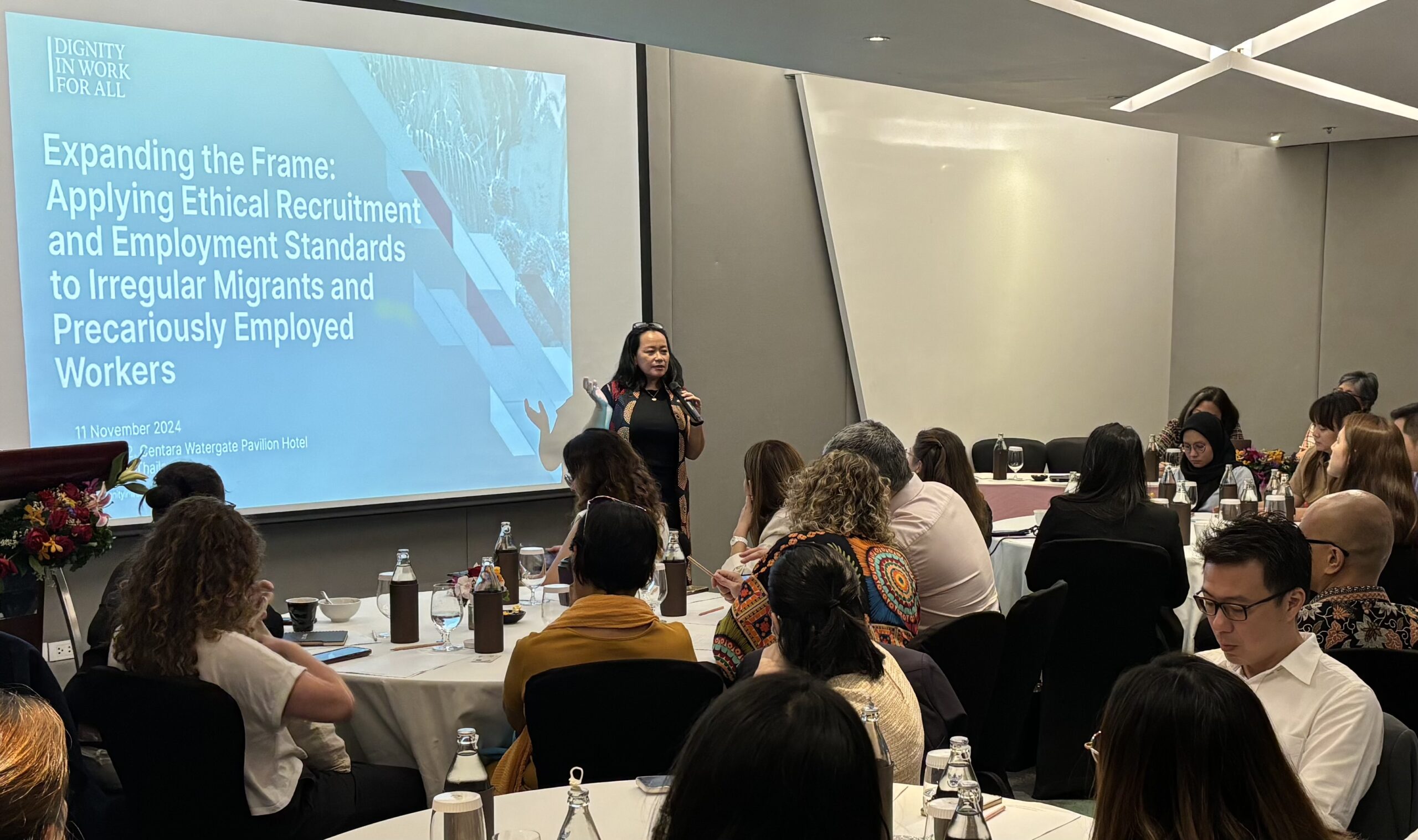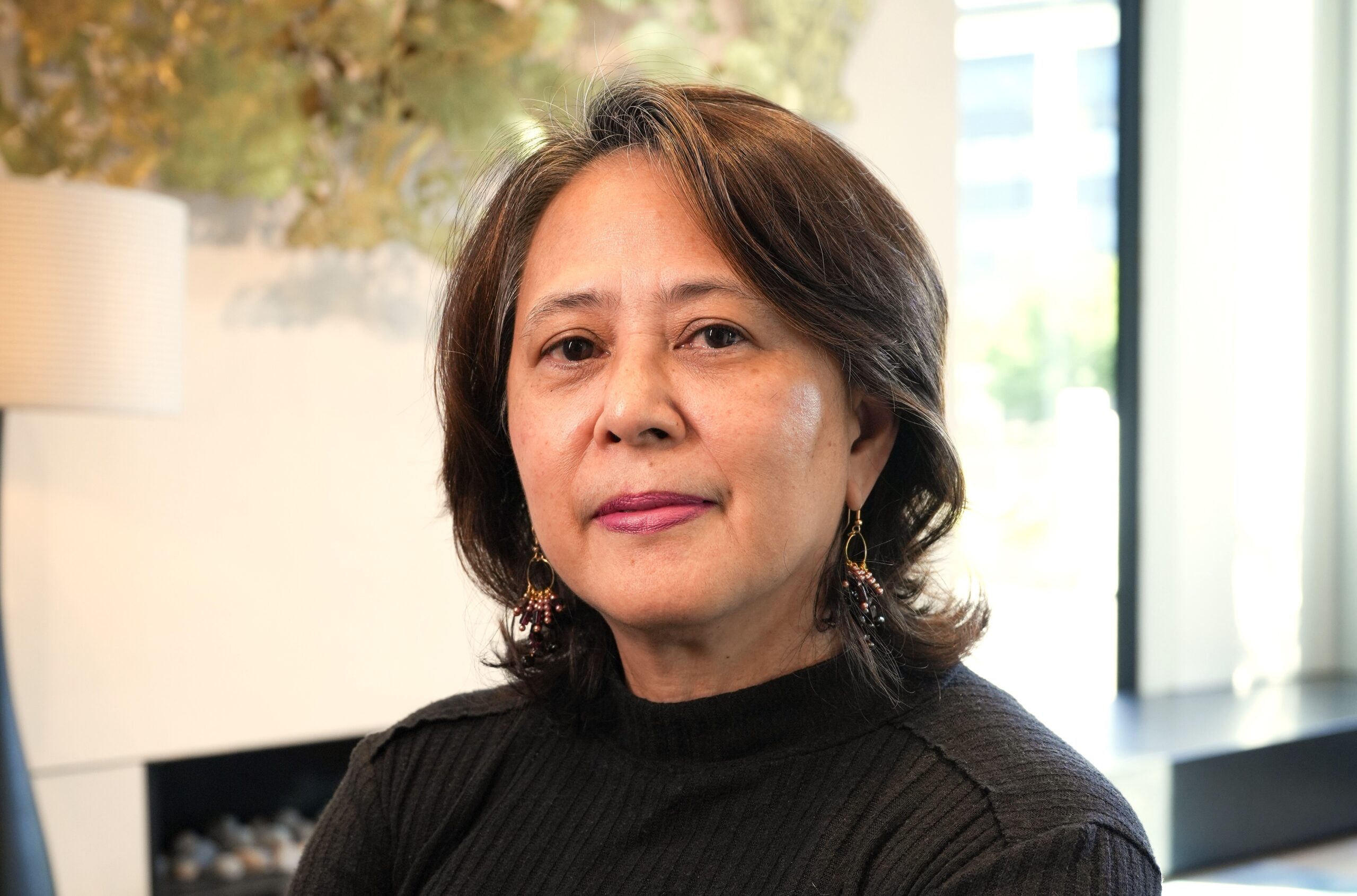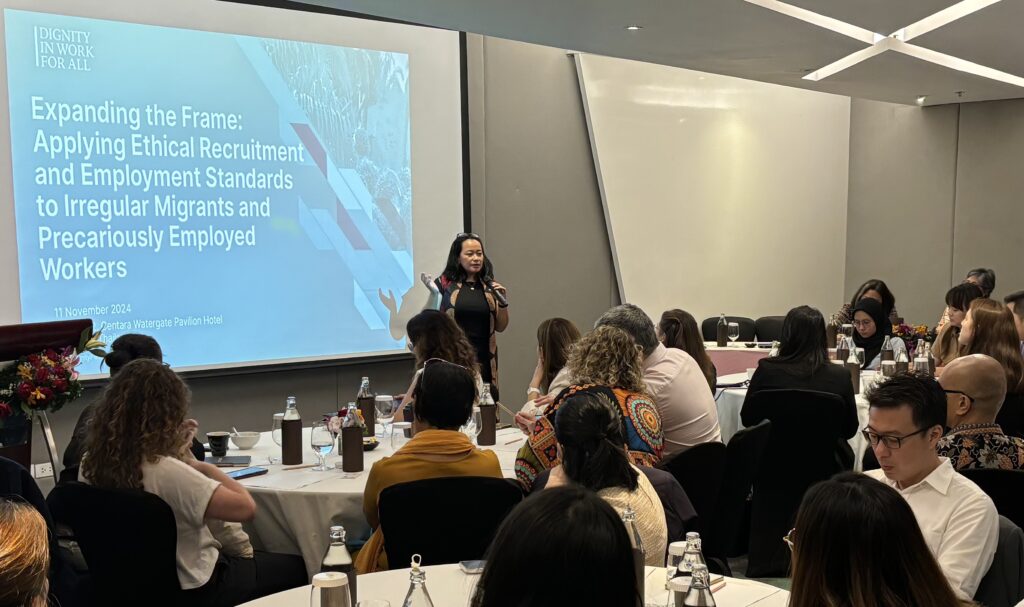
Daryll Delgado, DIWA Senior Director for Research and Stakeholder Engagement, welcomes participants to the organization’s Expanding the Frame forum held in Bangkok, Thailand on 11 November 2024. @Dignity in Work for All
Dignity in Work for All (DIWA) calls for employers to consider the application of ethical recruitment principles to a vulnerable set of workers: irregular migrants and precariously employed workers.
In a public forum organized in Bangkok last November 2024 entitled Expanding the Frame, DIWA made the call and presented findings and experiences from its work in three different Southeast Asian countries to participants who were largely from the palm oil businesses across the globe.
Kamini Visvananthan, DIWA Country Lead and Senior Program Manager for Malaysia, stated that foreign migrant workers (FMWs) hired to work in Sabah are more vulnerable than those hired for Peninsular Malaysia. Visvananthan explained that many of these FMWs are already in the state because of the porous border situation, have barely any legal documentation, and may be subjected to different “roads” to regularization. DIWA has noted that these present unique challenges to the application of the Employer Pays Principle (EPP). Maecel Cayanan, Senior Program Manager for Research and Stakeholder Engagement, added that despite complexities involved in applying EPP to this special category of workers, some companies operating in Sabah have initiated efforts to map in earnest the various recruitment pathways the workers take and the unique human rights risks associated with these pathways. This, Cayanan said, is a critical first step to remediating some of the harms that FMWs in Sabah have been subjected to, as a result of regulatory and management systems gaps.
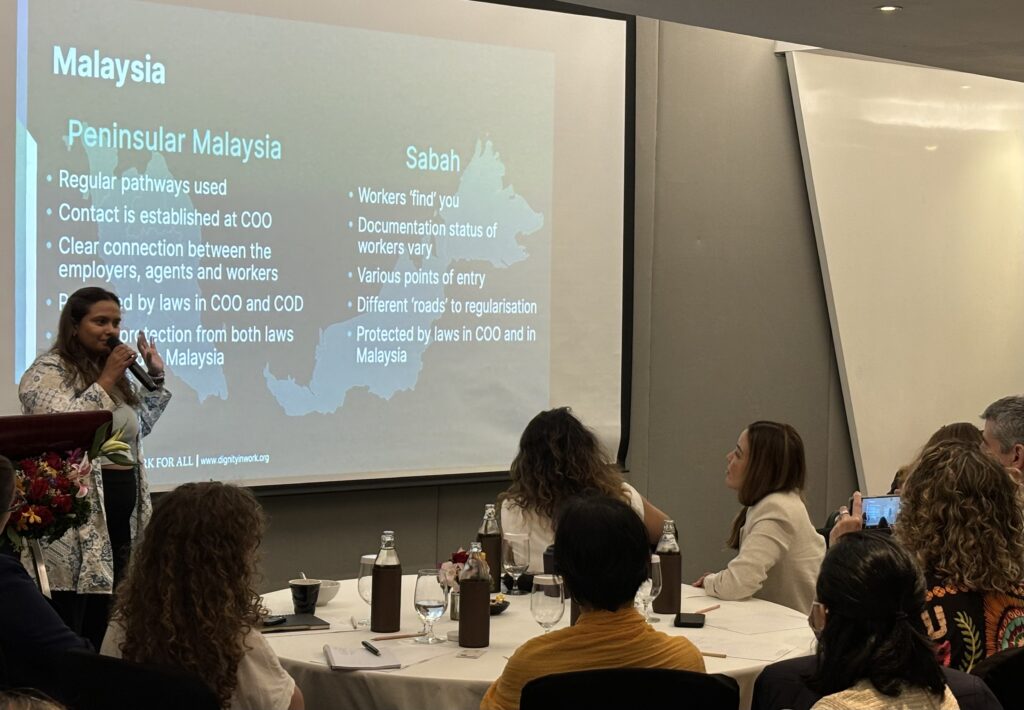
Kamini Visvananthan, Country Lead and Senior Program Manager for Malaysia, explains the differences between recruitment in Peninsular Malaysia and Sabah during DIWA’s Expanding the Frame forum held in Bangkok, Thailand on 11 November 2024. @Dignity in Work for All
Panyarak Roque, DIWA Thailand Country Director, highlighted the situation of Myanmar workers and refugees who were hired in-country, or those who were already in Thailand and obtained employment outside of the normal cross-border route. Roque stated that government regulations and employers’ recruitment systems are mainly designed for cross-border recruitment; and that if there is any management of in-country recruitment at all, it would be more of a stop-gap measure. In a recent research project on the matter, DIWA noted that workers hired in-country in Thailand are at risk for forced labor or human trafficking due to the lack of adequate controls by government and within businesses.
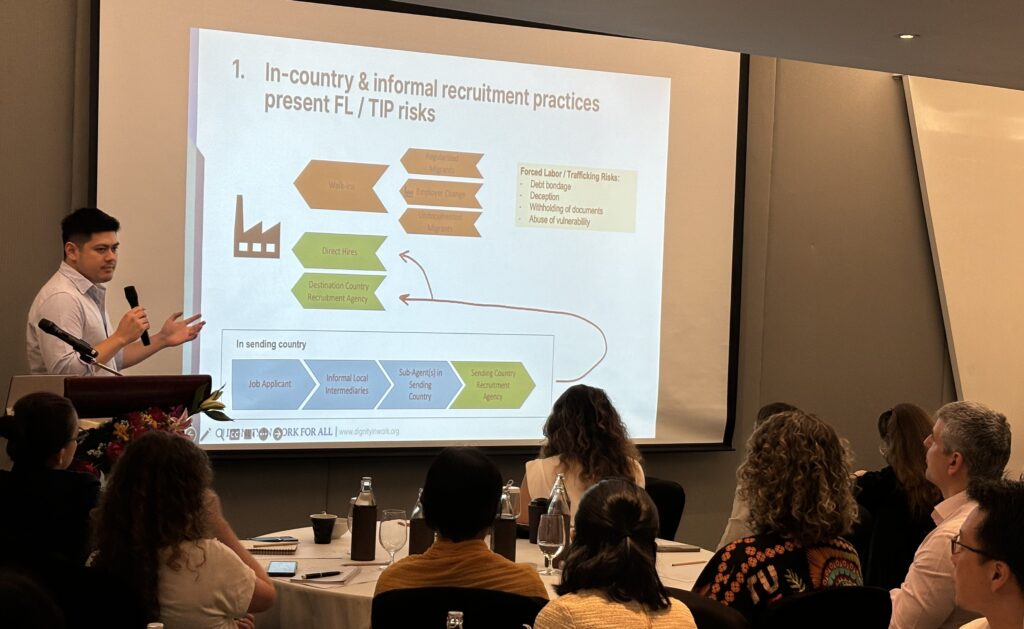
Panyarak Roque, DIWA Thailand Country Director, explains the forced labor and human trafficking risks in in-country and informal recruitment practiced during DIWA’s Expanding the Frame forum held in Bangkok, Thailand on 11 November 2024. @Dignity in Work for All
Renata Sandhi, DIWA Country Lead and Senior Program Manager for Indonesia, presented the various issues in employment practices that are prevalent in Indonesian palm oil mills and estates which place workers in precarious working conditions. Sandhi noted the following: workers’ day-labor and prolonged temporary work status; excessive work hours, including the lack of one day off in seven; wage structures and systems contributing to unequal treatment of women and potentially driving child labor practices; difficulties in accessing sick and maternity leaves; and inadequate living conditions (e.g., lack of access to clean water, poor sanitation, high food prices).
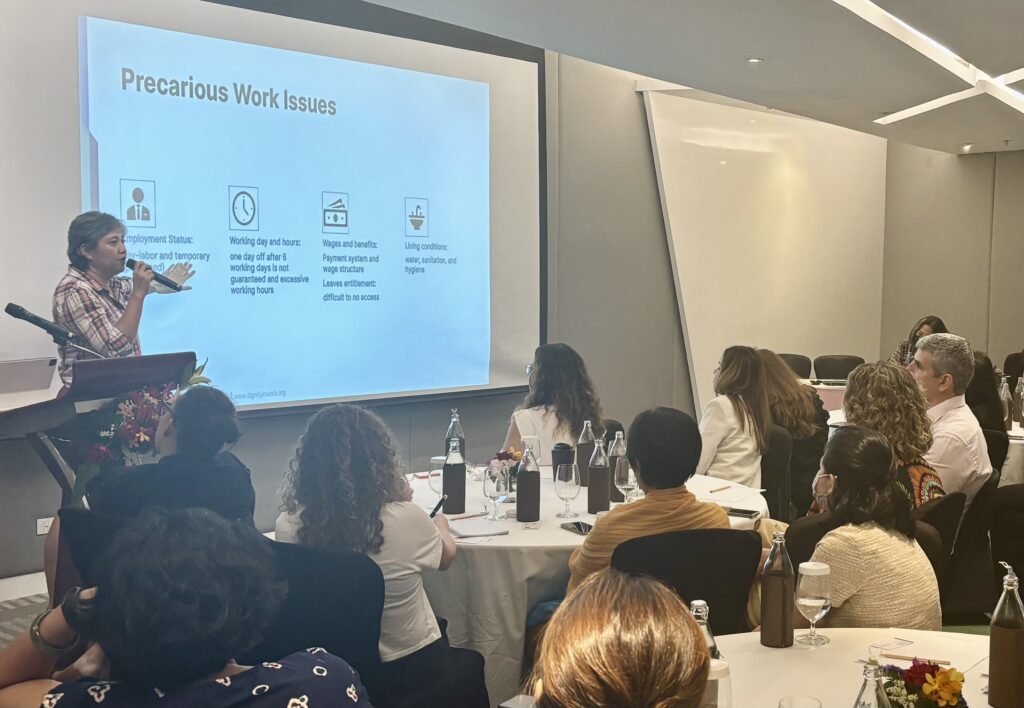
Renata Sandhi, Country Lead and Senior Program Manager for Indonesia, explains the precarious work issues confronting Indonesian palm oil workers during DIWA’s Expanding the Frame forum held in Bangkok, Thailand on 11 November 2024. @Dignity in Work for All
“It’s a complex problem,” one of the participants from a leading palm oil company concurred. “But companies cannot wash their hands of this.”
In closing, DIWA stressed the importance of worker voice and a multistakeholder approach in applying ethical recruitment and employment standards to the situation of irregular migrants and precariously employed workers. A call to surface the complexities of the issues rather than ignore them was also made. For more information on DIWA’s work in ethical recruitment and migrant workers’ rights, check out DIWA’s Resources page for research reports, tools, and other learning resources.
